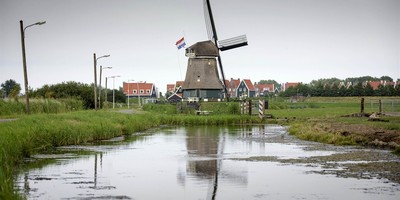The Wall Street Journal’s chief economics commentator Greg Ip published a significant book last year: Foolproof: How Safety Can Be Dangerous and Danger Makes us Safe (Little Brown and Company, 2015). It received many positive notices (including my own in Forbes.com). Just beneath its surface Ip advances a subversively transformational concept: libertarian as ecologist.
Ip, with one passing exception, uses “ecologist” where one might have expected “libertarian.” Ip imbues ecologists with a core tenet of libertarianism: incredulity about the capability of central planning to improve things in sustainable fashion. His substitution of ecologist for libertarian may offer the shrewdest re-coinage since, well, 1696.
In Chapter 1, Progressives, Engineers, and Ecologists, Ip presents two (largely forgotten in popular consciousness) roughly contemporaneous national traumas of yore: the Panic of 1907 and the (until then) largest forest fire in American history which consumed nearly 5,000 square miles of forest and several towns, killing 85 people. “The two disasters marked a turning point in how America coped with chaos,” writes Ip.
The Panic led directly to the creation of the Federal Reserve System. The first chief of the U.S. Forest Service made his new agency’s priority the extinguishing forest fires. Neither ended well.
“A century later panics and forest fires are still with us,” Ip observes.
“In 2008 a devastating global financial crisis erupted and tipped the entire world into its worst recession since the 1930s. Meanwhile massive forest fires have once again become routine….” What does Ip make of this?
“Philosophically [the people whose job it is to steer our economy and manage our surroundings] … fall into two schools of thought. One, which I call the engineers, seeks to use the maximum of our knowledge and ability to solve problems and make the world safer and more stable; the other, which I call the ecologists, regards such efforts with suspicion, because given the complexity and adaptability of people and the environment, they will always have unintended consequences that may be worse than the problem we are trying to solve.”
Recommended
Ip writes with meticulous respect for the “engineers” as well as for “ecologists.” That said, notwithstanding his diplomatic proposal to reconcile the two his book contains an overwhelming bill of particulars on how the “engineers” repeatedly end up compounding the problems they sought to address. No remotely comparable Parade of Horribles is offered for the “ecologists.”
This suggests that Ip’s sympathies lie against the Faustian bargain to which engineers inevitable seem drawn. The social engineers take small, self-limiting, problems and parlay them into catastrophes or disasters waiting to happen. Where have all the flowers gone, long time passing?
Using “subversively” to describe Foolproof is not a pejorative. The New Oxford American Dictionary defines subvert as to “undermine the power and authority of (an established system or institution).”
Subvert derives from the Latin subvertere, sub- ‘from below’ + vertere- ‘to turn.’ To “steer from below” is an apt description of how libertarians — or let us now say ecologists — have transformed the culture. Ip steers us, from below, with a powerful new label.
I myself, a classical liberal, have never felt fully comfortable with the “libertarian” label. Libertarianism has taken on both cult and occult connotations. Such connotations make it less accessible, and influential, than its profound insights deserve.
Perhaps unfairly the libertarian label is viewed by the larger culture as something of a cult: “a relatively small group of people having … beliefs or practices regarded by others as strange or sinister.” Libertarianism, too, is seen as occult: “communicated only to the initiated; esoteric.” It would be better if this worldview had a label with less esoteric connotations.
“Ecologist” has an intuitively lucid meaning with a less confusing subtext than “libertarian.” “Ecologist” conveys beautifully the belief in spontaneous, or, as Hayek put it in The Fatal Conceit, “extended” order. “Ecologist” possesses a stylish, hip, character while “libertarian” harks back to late 18th century letters… and sounds like it.
Using “ecologist” might open the door to a larger and more influential coalition built around respect for the organic order of things, one incredulous toward the artificial order of central planners.
Thank you, Greg Ip.
Welcome fellow ecologists.

























Join the conversation as a VIP Member